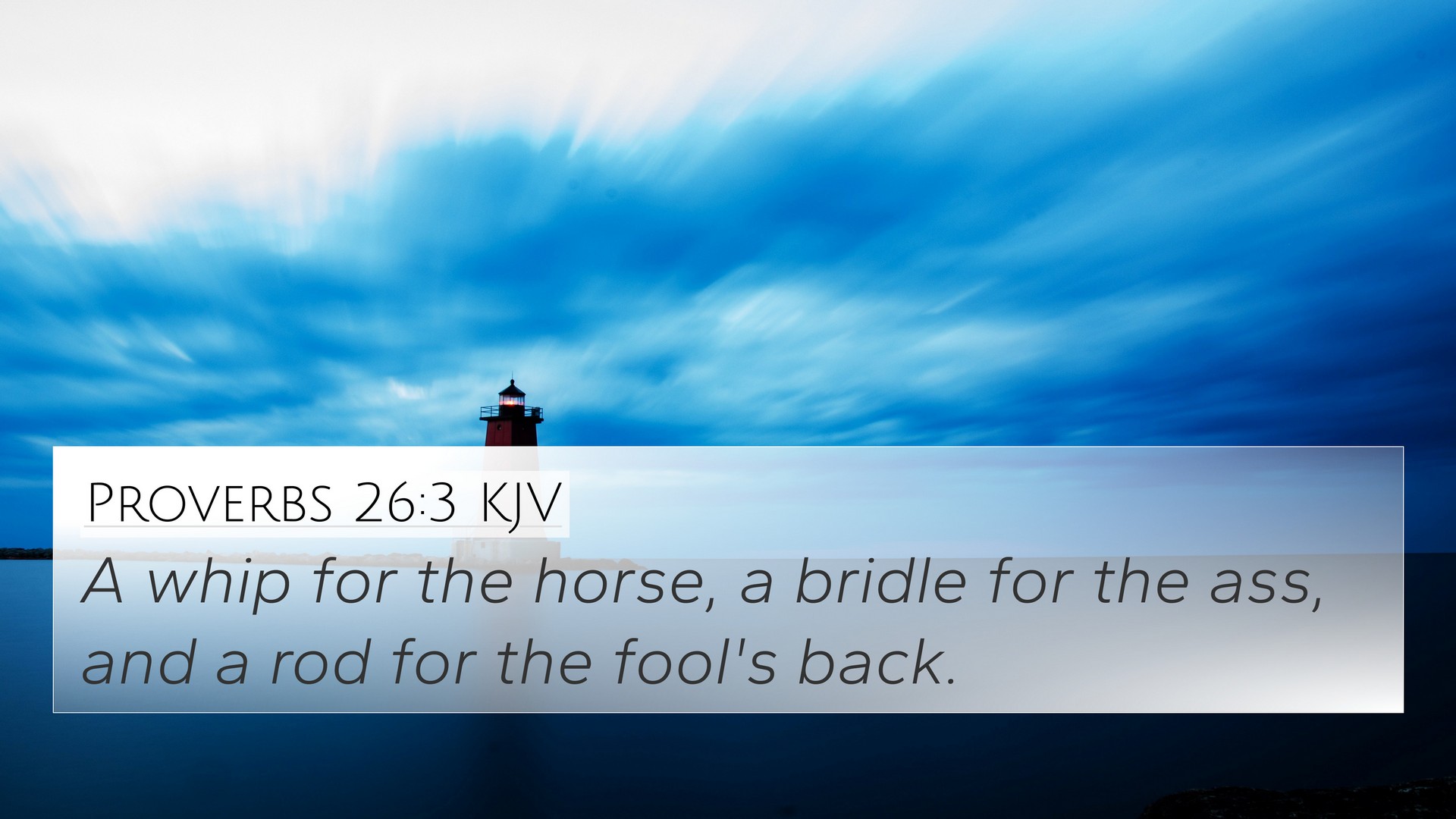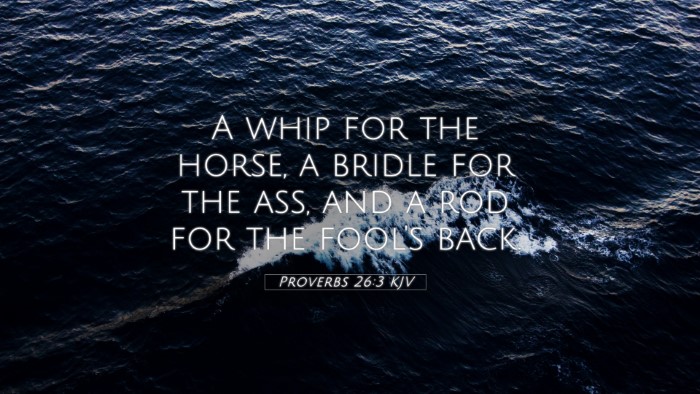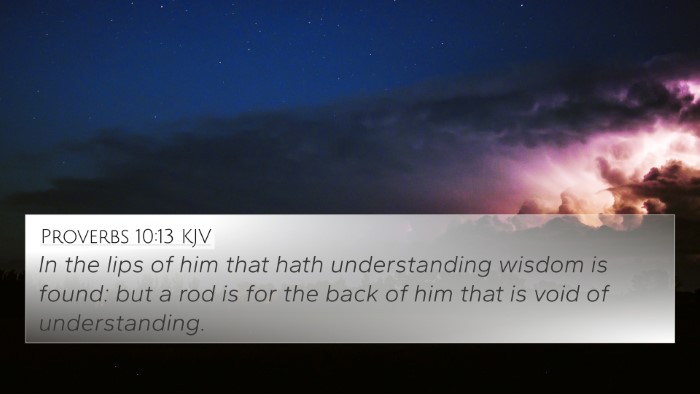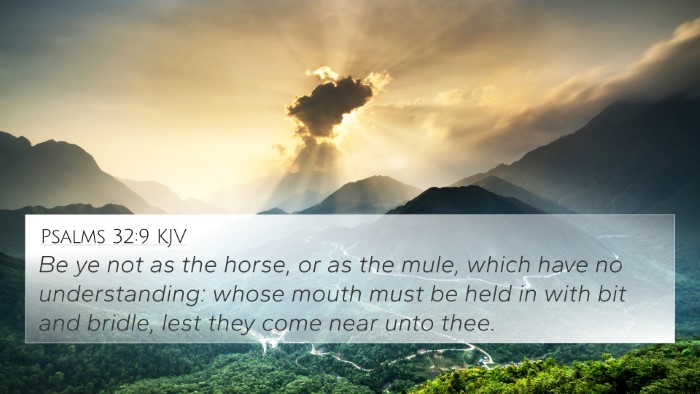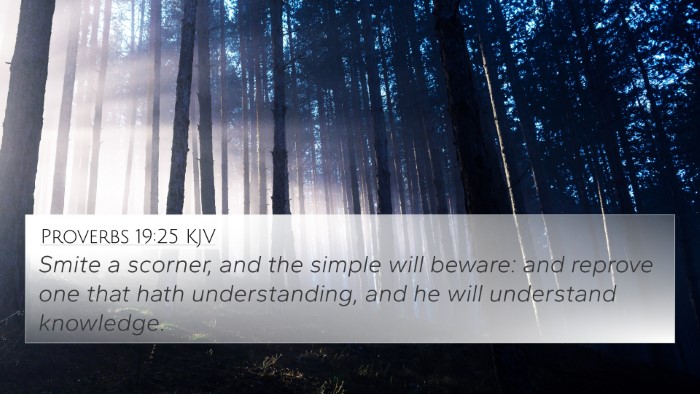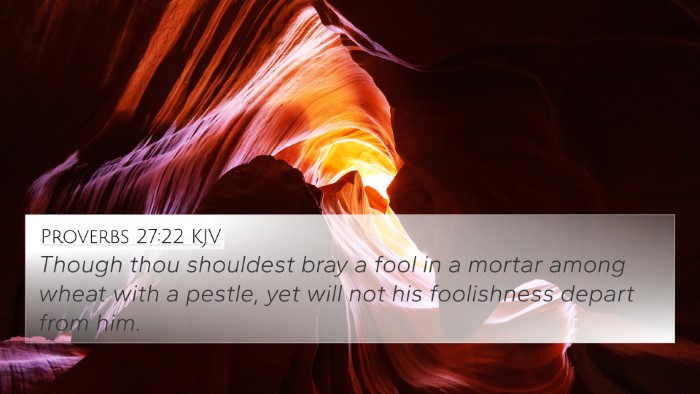Understanding Proverbs 26:3
Proverbs 26:3 states: "A whip is for the horse, a bridle for the donkey, and a rod for the back of fools."
Summary of Meaning
This verse provides metaphorical insights into discipline and the necessity of correction. It presents a comparison that highlights the importance of appropriate tools for managing the behaviors of different creatures, drawing a parallel to human folly.
Insights from Public Domain Commentaries
-
Matthew Henry's Commentary:
Henry emphasizes that just as various animals require specific forms of guidance, so do people, particularly the foolish. He notes that the 'whip' and 'bridle' signify the necessity of authority and rules in the lives of individuals who may stray into folly.
-
Albert Barnes' Commentary:
Barnes interprets the 'rod' as a metaphorical representation of punishment or correction that is fitting for fools. He highlights the idea that without proper discipline, foolishness will prevail, thereby reinforcing the need for boundaries in human behavior.
-
Adam Clarke's Commentary:
Clarke explores the idea that just as horses and donkeys have distinct needs for guidance, individuals require tailored approaches to discipline. He draws attention to the harsh reality of consequences when wisdom is neglected, which can resulting in severe chastisement.
Cross References in the Bible
Proverbs 26:3 can be cross-referenced with the following scriptures:
- Proverbs 13:24: "He who spares his rod hates his son, but he who loves him disciplines him promptly." - This verse emphasizes the importance of discipline in love.
- Proverbs 22:15: "Foolishness is bound up in the heart of a child; the rod of correction will drive it far from him." - This connects the need for corrective measures in raising children.
- Proverbs 23:13-14: "Do not withhold correction from a child, for if you beat him with a rod, he will not die. You shall beat him with a rod, and deliver his soul from hell." - Here correction equates to salvation from folly.
- Hebrews 12:6: "For whom the Lord loves He disciplines, and scourges every son whom He receives." - This New Testament affirmation correlates God's discipline with love.
- Revelation 3:19: "As many as I love, I rebuke and chasten. Therefore be zealous and repent." - This emphasizes that discipline is an act of love and leads to repentance.
- 1 Corinthians 11:32: "But when we are judged, we are chastened by the Lord, that we may not be condemned with the world." - This shows that divine correction leads to redemption.
- Proverbs 29:15: "The rod of correction gives wisdom, but a child left to himself brings shame to his mother." - This emphasizes that guidance is necessary for wisdom to flourish.
Thematic Bible Verse Connections
The themes of discipline, correction, and wisdom pervade the Scriptures. Recognizing these connections deepens our understanding of how various passages converge on similar principles.
-
Tools for Bible Cross-Referencing: Utilizing a Bible concordance can help identify related verses and develop a comprehensive understanding of scriptural discipline.
-
Cross-reference Bible study: Engaging in comparative analyses of verses can enhance one’s grasp on Biblical teachings about correction and wisdom.
-
Identifying connections: Investigating how Old Testament teachings correlate with New Testament principles reveals the consistent nature of God's guidance and correction throughout scripture.
Conclusion
Proverbs 26:3 succinctly encapsulates the necessity of discipline and correction within the framework of folly. When we diligently explore the tool of cross-referencing Biblical texts, we uncover profound thematic connections that reinforce the significance of wisdom and guidance. These scriptural dialogues enrich our understanding and provide vital insights into the nature of discipline prescribed in the Holy Scriptures.
